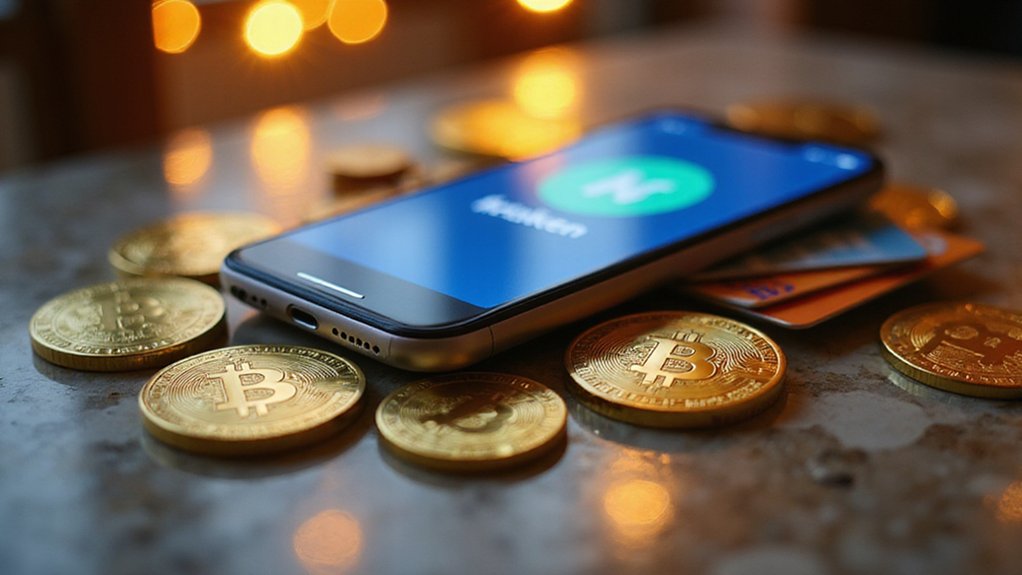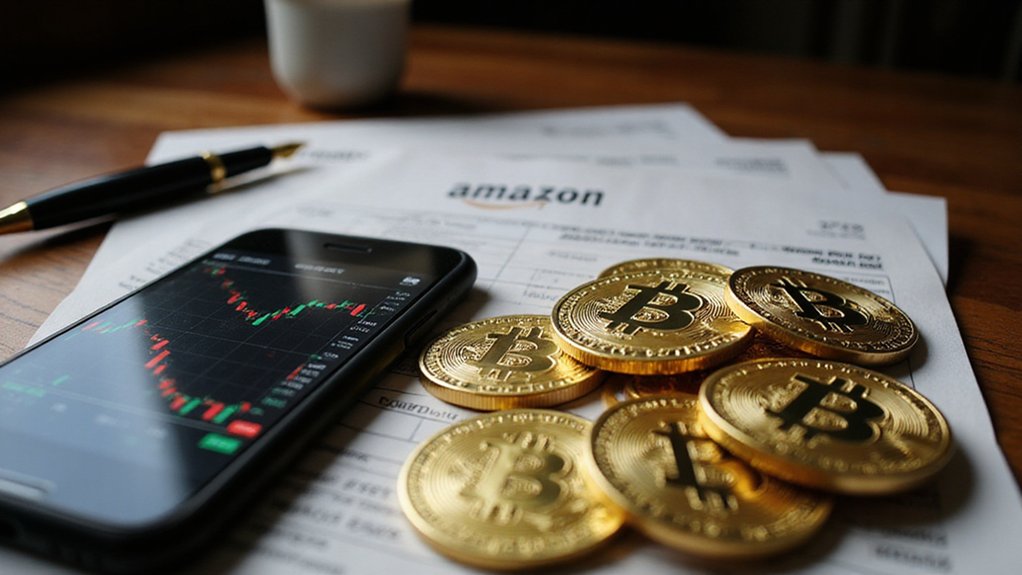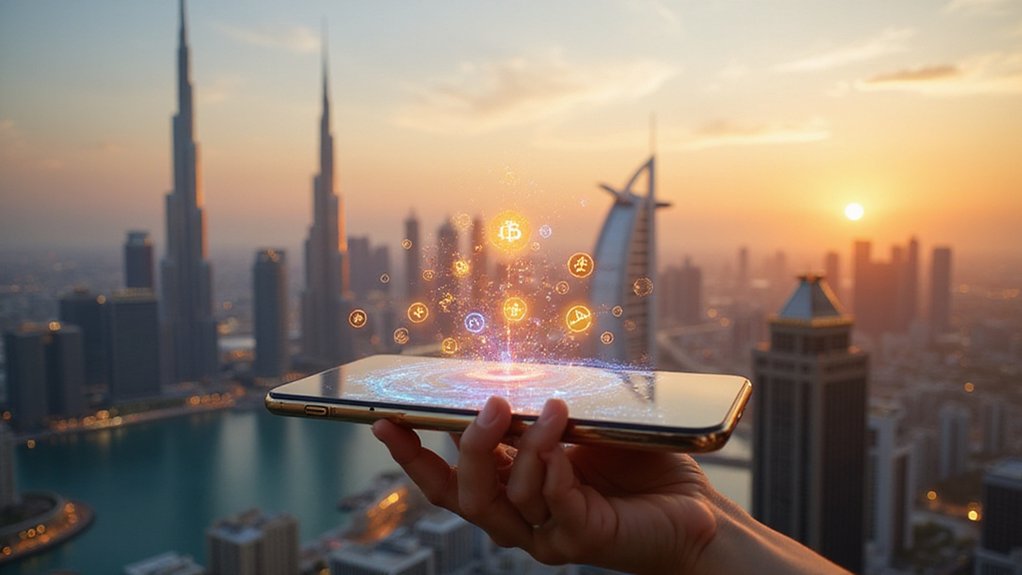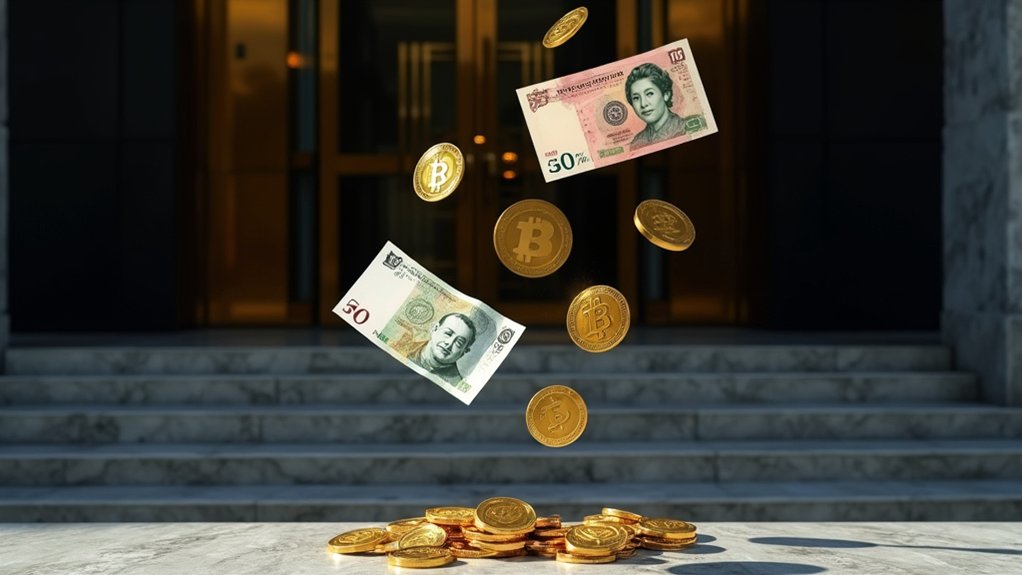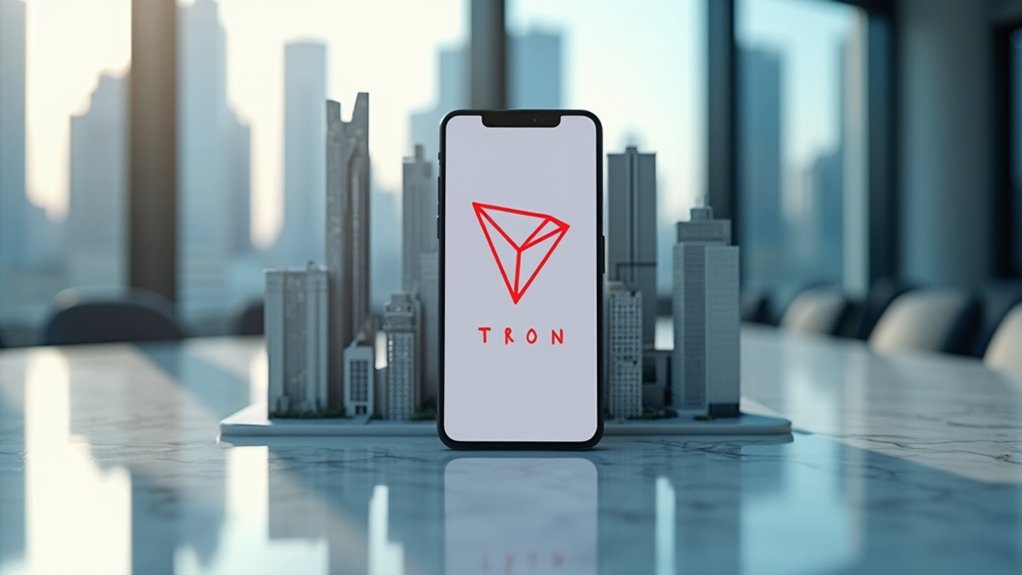In an era where traditional banking institutions continue to charge exorbitant fees for the privilege of moving one’s own money across imaginary borders, Kraken has launched its Krak app—a thorough financial platform that promises to do what legacy banks have somehow failed to accomplish in decades of supposed innovation.
The app enables instant peer-to-peer transfers across more than 110 countries using personalized “Kraktags” as payment identifiers, eliminating the peculiar ritual of sharing sensitive banking details just to receive money. This system supports transactions in over 300 different assets—cryptocurrencies, stablecoins, and fiat currencies—consolidated within a single account, because apparently managing money shouldn’t require juggling multiple platforms like a financial circus performer. The platform’s embrace of peer-to-peer digital transactions reflects the broader evolution of cryptocurrencies from internet jokes to legitimate financial instruments.
Perhaps most strikingly, Krak offers users up to 4.1% annual percentage rate on USDG stablecoin balances and up to 10% rewards on staked crypto assets, with no lockup periods or byzantine restrictions. These yields compare favorably to traditional savings accounts, which currently offer rates that barely compensate for inflation (assuming one can locate a bank that still acknowledges the concept of paying depositors). The platform provides 24/7 in-app support for users requiring assistance with their accounts or transactions.
Krak delivers actual returns on deposits—a concept traditional banks seem to have misplaced somewhere between fee increases and apathy.
The platform operates on permissionless public blockchain infrastructure, providing real-time global settlements while maintaining transparency—a invigorating departure from the opaque machinations of correspondent banking networks. This modern approach stands in stark contrast to traditional banks that continue running on mainframe systems from decades past, creating unnecessary bottlenecks in an increasingly digital world.
Users can transact across 160+ countries using their Kraktags, facilitating seamless cross-border payments that combine crypto and fiat currencies without the traditional headaches of currency conversion fees and settlement delays.
Kraken plans to introduce physical and virtual Krak cards for worldwide spending, effectively bridging the gap between digital asset holdings and real-world commerce.
The company is also developing collateral-based lending services that will allow users to borrow against their holdings without credit checks—because why should accessing liquidity require submitting to financial archaeology expeditions through one’s credit history?
